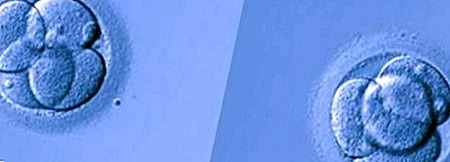British allow genetic manipulation of embryos

Britain made a groundbreaking decision: a research group from the London Francis Crick Institute got permission to change the genes of human embryos. However, it is forbidden to plant them to a woman. Nevertheless, the ethical debate on genetic engineering in humans is likely to move into the next round.
"We want to understand which genes control the successful development of embryos," said Team Leader Dr. Kathy Niakan to the BBC. For although miscarriages and infertility are very common, the causes are still not adequately investigated.
Every second fertilized egg does not develop any further. This could be due to a faulty gene code, the researchers suspect. Their hope is to identify the key genes for cell division in order to further improve artificial insemination and enable more targeted therapies for infertile people.
Ethics Committee still has to agree
As early as March, the British scientists could begin their experiments, provided that they are also approved by the Ethics Committee. The research program, which will initially involve 30 embryos, will focus on the first seven days after fertilization, when a complex of around 250 cells develops from the individual cell.
The embryos are donations from couples undergoing artificial insemination. After the genetic manipulation, the embryos must be destroyed within 14 days.










